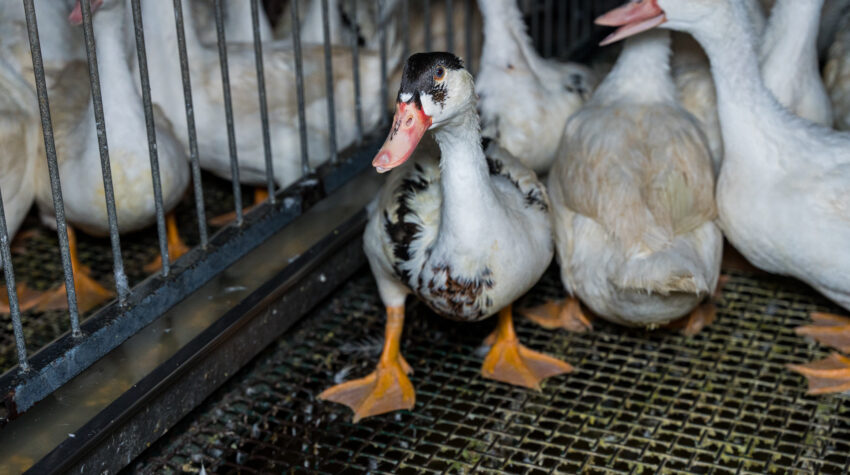
October 15, 2025Animal Law & Policy Program, Media ReleaseWritten Testimony Submitted on Massachusetts Foie Gras Legislation
The Brooks McCormick Jr. Animal Law & Policy Program’s Faculty Director, Professor Kristen Stilt and Associate Director of Policy and Research, Ann Linder, submitted written testimony to the Massachusetts Legislature’s Joint Committee on Environment and Natural Resources regarding H.966/S.544, “An Act prohibiting the mistreatment of birds.” This proposed legislation would prohibit the production and sale of force‑fed poultry products in the Commonwealth.
The testimony explains that force-feeding birds is a technique used to produce products such as foie gras. The force-feeding process “involves close, intense, and frequent physical contact between producers and birds during the manual process of a human worker physically restraining the animal and putting a tube down the animal’s throat several times a day.” The testimony notes that “[e]ach of these human-animal interactions creates opportunities for exposure to zoonotic disease through direct contact with the animal’s saliva and other bodily fluids or through other modes such as airborne-transmission.”
The testimony emphasizes that “[r]educing or eliminating these kinds of human-animal interactions is particularly and urgently relevant because ducks and other waterfowl serve as reservoirs for avian influenza viruses, including the current H5N1 subtype.” It underscores that force-feeding is problematic because “[w]aterfowl raised for foie gras can transmit avian influenza viruses within farms and to surrounding wildlife, which risks spreading these pathogens to new species and further undermines containment efforts.”
Citing federal data, the testimony notes ongoing detections of highly pathogenic avian influenza in wild birds and in commercial and backyard flocks nationwide since 2022. Its authors conclude that “foie gras production poses a clear, ongoing threat to animal welfare, commercial livestock and poultry production, public health, and ecosystem stability.”
HLS students Valerie McCarthy ’26 and Andrew Ciacci ’27 provided research assistance for the written testimony.
